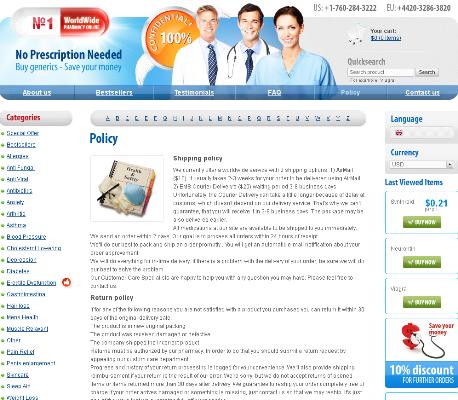Understanding Naprosyn: Side Effects and Precautions
What Is Naprosyn and How Does It Work?
Naprosyn, also known by its generic name naproxen, is a popular nonsteroidal anti-inflammatory drug (NSAID) used to relieve pain and inflammation. This medication works by blocking certain natural substances in the body, called prostaglandins, that cause inflammation. This action helps to reduce symptoms like pain, swelling, and fever, making it effective for conditions such as arthritis, muscle strains, and menstrual cramps.
The mechanism by which Naprosyn operates involves inhibiting the enzymes known as COX-1 and COX-2. This dual inhibition decreases the production of prostaglandins, resulting in less inflammation and discomfort. Because it’s available in various forms, from tablets to elixir solutions, it's versatile and convenient for different patient needs. However, following the correct sig on your script is critical to ensure safety and effectiveness.
While Naprosyn is effective, it’s essential to be aware of potential side effects. Always consult with your healthcare provider to weigh the benefits and risks before starting this medication.
| Form | Usage |
|---|---|
| Tablet | Oral consumption |
| Elixir Solution | Oral consumption with a sweetened flavor |
| Topical Cream | External application to reduce localized pain |
Common Short-term Side Effects of Naprosyn

Naprosyn, a common NSAID, is primarily used to alleviate pain and inflammation. However, like any medication, it can come with its fair share of short-term side effects. Users might experience digestive issues such as nausea, heartburn, or indigestion. It’s not unusual to encounter headaches or dizziness, either. While most side effects tend to be mild and transient, they can still be bothersome. The "happy pills" effect is definitely not part of Naprosyn's profile, as it doesn't possess any mood-enhancing properties.
As with any script, staying informed and vigilant is crucial. Always follow the sig meticulously to minimize the impact of these side effects. Interestingly, some may mistake the itchiness of an allergic reaction as “junkie’s itch.” Remember, it's essential to communicate any side effects to your healthcare provider stat to ensure safe usage.
Recognizing Serious Side Effects and Reactions
When taking Naprosyn, it's crucial to be aware of serious side effects that could arise. If you experience symptoms such as chest pain, difficulty breathing, sudden weakness, or slurred speech, seek medical assistance stat. These could indicate severe reactions like heart attack or stroke. Rare but critical side effects include gastrointestinal bleeding, evident from bloody stools or vomit. If these symptoms occur, don't wait—get to your healthcare provider immediately.
It's also essential to monitor for allergic reactions, including rash, itching, or swelling, especially in the face or throat, and trouble breathing. Such reactions require urgent medical attention and are a red flag for halting the script straight away.
Who Should Avoid Taking Naprosyn?

Naprosyn is not suitable for everyone; specific groups should avoid its use. Individuals who have experienced severe allergic reactions to NSAIDs, including aspirin, should steer clear of Naprosyn. Those with a history of gastrointestinal conditions, such as ulcers or bleeding, may face heightened risks when taking this medication. Additionally, people with kidney or liver impairment, heart disease, or hypertension should exercise caution, as Naprosyn could exacerbate these conditions.
Pregnant women, particularly in the third trimester, should avoid Naprosyn unless prescribed by a healthcare provider. The compound medication can impact fetal development and complicate delivery. Those on certain anticoagulants or other medications should also consult their healthcare provider due to potential drug interactions. A comprehensive Meds Check is advisable to ensure safety.
For elderly patients, the side effect profile of Naprosyn is particularly concerning due to increased sensitivity and higher risks of adverse reactions. Engaging in a thorough Drug Utilization Review (DUR) with a pharmacist or healthcare provider can help determine if this medication is appropriate. Ensuring that the Sig - Directions on a prescription is meticulously followed will minimize any health risks, and it's wise to explore alternatives if any red flags arise.
Important Precautions While Using Naprosyn
When using Naprosyn, it's crucial to strictly follow the Sig your healthcare provider has given. Monitor for any adverse reactions and immediately report anything unusual. For people who are part of the "pharm party" culture, mixing Naprosyn with other drugs can be dangerous. Always keep your medication in its original vial to avoid misuse.
Users of Naprosyn should avoid engaging in activities that require full alertness until they understand how it affects them. Regularly schedule Meds Checks to ensure no adverse interactions with any OTC drugs you might be taking. Everyone should also be aware of potential interactions with other compounds, making communication with your healthcare provider essential.
| Precaution | Action |
|---|---|
| Follow Sig | Adhere to directions on prescription |
| Monitor Reactions | Report any unusual side effects |
| Avoid Pharm Party | Do not mix with other drugs |
| Keep in Vial | Store in original container |
| Meds Checks | Regular medication review |
Alternatives and Steps to Minimize Side Effects
Exploring alternatives to Naprosyn can offer significant relief while minimizing side effects. Non-drug options like acupuncture and physical therapy are effective for some individuals. For a more natural approach, consider supplements such as omega-3 fatty acids or turmeric. If prescription pain relief is necessary, you might discuss with your white coat the possibility of script alternatives like certain antidepressants or muscle relaxants. Additionally, over-the-counter (OTC) options such as acetaminophen can be a viable choice for short-term pain management while reducing the chance of serious side effects.

